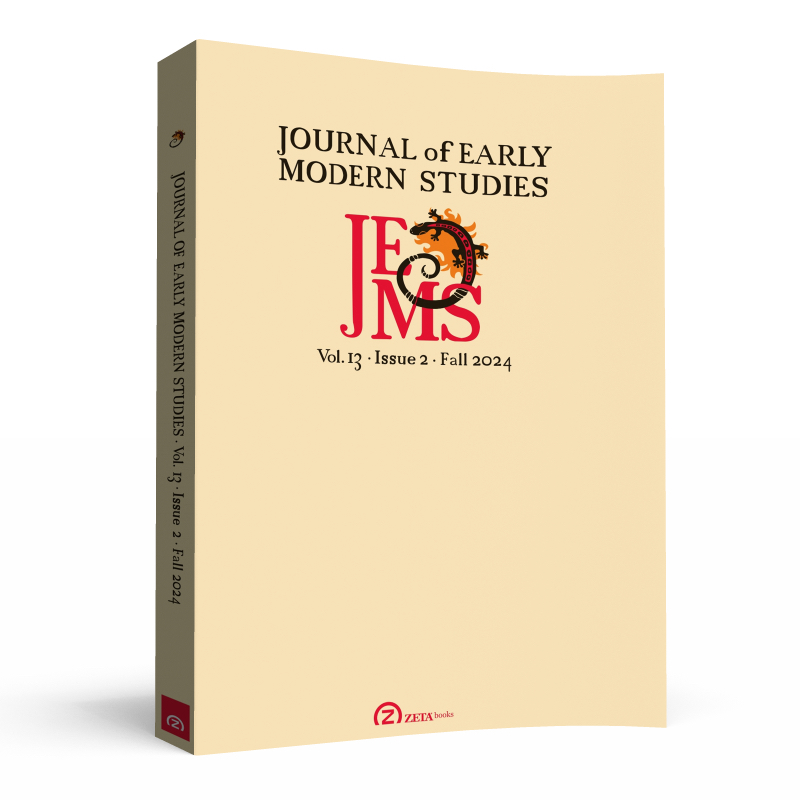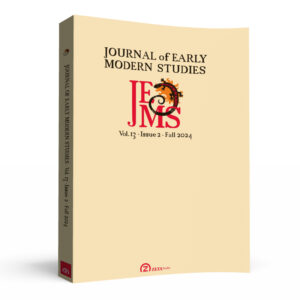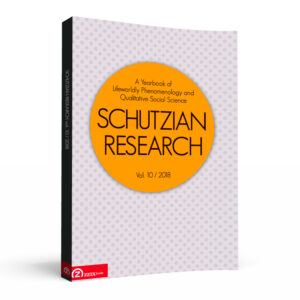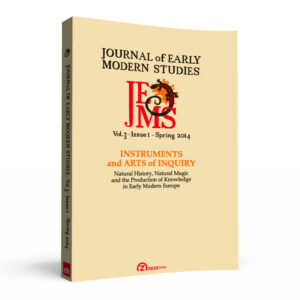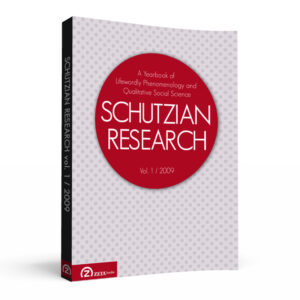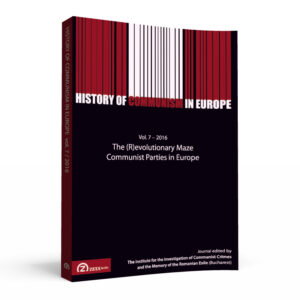Journal of Early Modern Studies, Volume 13, issue 2 (Fall 2024)
ISSN: 2285-6382 (paperback) / ISSN: 2286-0290 (electronic)
CONTENTS
Articles
ENRICO PASINI, Teaching a Habit: Business and Controversy around the Art of Memory in the Seventeenth Century
Abstract: The focus of this paper will be, on the one hand, on a prime example of the historical issues and practices related to the teaching of the habits involved in the art of artificial memory: on Lambert Schenckel, a didactic genius, possibly the most important teacher that the tradition of the art of memory ever saw; on Martin Sommer, his follower and betrayer; on the true history of the Gazophylacium artis memoriae. This, on the other hand, will allow us to highlight relevant aspects of the seventeenth-century reshaping of certain habits of the human mind, setting them on a background where the habit-forming practices on which the art of memory is based, and their teaching, can be seen not so much as a merely instrumental component, but rather as a relevant social phenomenon in themselves, that accompanies a seemingly contradictory transformation of individual and social needs.
VALTTERI VILJANEN, The Early Modern Rationalists and Substantial Form: From Natural Philosophy to Metaphysics
Abstract: This paper argues that, contrary to what one might think, early modern rationalism displays an increasing and well-grounded sensitivity to certain metaphysical questions substantial form was designed to answer—despite the fact that the notion itself was in such disrepute, and emphatically banished from natural philosophy. This main thesis is established by examining the thought of Descartes, Spinoza, and Leibniz through the framework constituted by what have been designated as the two aspects, metaphysical and physical, of substantial form. This examination shows that Descartes ends up assigning to soul a notable metaphysical task formerly assigned to substantial form, whereas Spinoza advances a theory of essences motivated by the philosophical concerns behind the two aspects of substantial form. Leibniz finally makes a sharp distinction between natural philosophy and metaphysics as he develops a dynamistic theory that deliberately aims at understanding substantial form in a new fashion. This line of development is designated as one major factor contributing to the separation of philosophy and natural science.
OBERTO MARRAMA, “The Habit of Virtue”: Spinoza on Reason and Memory [OPEN ACCESS]
Abstract: In this paper I explain how, for Spinoza, humans can acquire the “habit of virtue” from “fatal necessity” (Ep.58). Spinoza claims that no decision can be made without memory of the thing that one wants to do. However, his rejection of free will also implies that nobody can freely select what to remember. It seems that, as it is not in the power of an individual to freely choose what to remember and do, it is not possible to establish a disposition towards virtuous behavior. To solve this puzzle, I focus on the way in which memory interacts with reason, in Spinoza’s system. I argue that this interaction allows the unfolding in time of reasoning processes. Reasoning can, in turn, be conceived as a kind of habit, which generates and sustains virtuous behavior. First, I clarify what the notion “habit of virtue” signifies for Spinoza. Then, I briefly review his account of memory. Next, I elucidate his conception of reason and its building blocks, “common notions.” On these grounds, I show how reason can be understood as an activity by which mnemonic associations are reconfigured. Finally, I point out how reason relies on memory to preserve itself in time, determining virtuous habits.
SAMUEL KAHN, Non-Accidental Rightness and the Guise of the Objectively Good
Abstract: My goal in this paper is to show that two theses that are widely adopted among Kantian ethicists are irreconcilable. The paper is divided into four sections. In the first, I briefly sketch the contours of my own positive view of Kantian ethics, concentrating on the issues relevant to the two theses to be discussed: I argue that agents can perform actions from but not in conformity with duty, and I argue that agents intentionally can perform actions they take to be contrary to duty. In the second, I focus on Barbara Herman’s non-accidental rightness condition from “On the Value of Acting from Duty.” In the third, I focus on Christine Korsgaard’s guise of the objectively good from “Formula of Humanity.” In the fourth, I explain why the positions developed by Herman and Korsgaard are irreconcilable and I make a suggestion about how to move forward.
ARON L. OUWERKERK, Mapping the ‘Republic of Letters’ in East Central European Correspondences [OPEN ACCESS]
Abstract: The significance of the ‘Republic of Letters’ as a Pan-European and cross-national concept is often addressed in scholarship on early modern intellectual history. Focusing on an extensive digital epistolary corpus of authors of East Central European descent from c. 1600 to c. 1800, this article aims to readdress this argument by analyzing the currency of the most frequently used terms in Latin that denote a sense of scholarly community (viz. respublica literaria and orbis literatus) from a combined quantitative and qualitative approach. Based on the results of this analysis, it is argued that with respect to this geography, terms referring to the Republic of Letters were not as vital and ubiquitous as modern scholarship may perhaps lead one to believe. As the supposed increasing geographical spread and frequency of these terms are oftentimes mentioned as signs of the growing currency of their underlying concept, it is important to realize that their continental occurrence seems, in fact, limited at best and erratic at worst. Consequently, it is argued that concerning the analysis of individual authors, the methodology adopted in this study can only yield a meaningful discussion in the case of a relatively large number of occurrences, as the absence of these terms could be regarded as the default ‘standard’ in the regions under discussion—and possibly beyond.
Reviews
OLIVIER DUBOUCLEZ
Quentin Hiernaux and Corentin Tresnie, Andrea Cesalpino’s De Plantis Libri XVI (1583) and the Transformation of Medical Botany in the 16th Century, edition, translation, and commentary on Book I, Berlin/Boston: De Gruyter, 2023.
KHAFIZ KERIMOV
Anna Tomaszewska, Kant’s Rational Religion and the Radical Enlightenment: From Spinoza to Contemporary Debates, New York: Bloomsbury Academic, 2022.
ALEXANDRA BACALU
Ruth Boeker, Catharine Trotter Cockburn (Cambridge Elements: Women in the History of Philosophy), Cambridge: Cambridge University Press, 2023.

